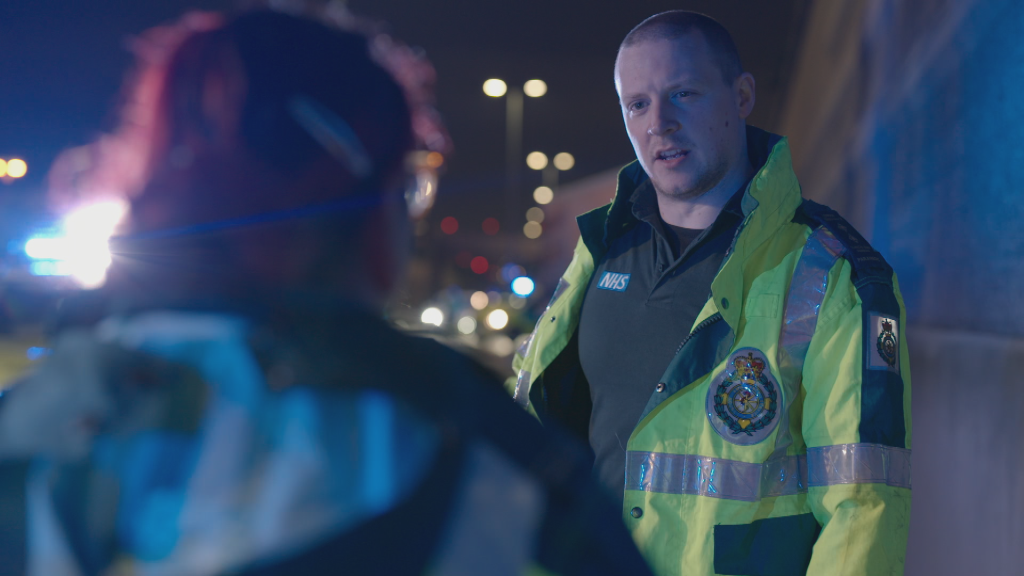Paramedic recalls terrifying London Bridge attack in BBC Ambulance and how it changed his career
One of the first paramedics on scene of the London Bridge terror attack in 2017 has recounted how the experience forever changed his life and career, on the fifth episode of BBC Ambulance.
During the attack, Gary Edwards was one of the first paramedics at the scene. He had been working alongside police as a Joint Response Unit (JRU) paramedic nearby when the call came in. He rushed to the scene arriving before police and while the attack was still ongoing.
Gary rapidly assessed the patients he could see – patients who were critically unwell, had been stabbed or run over or had already sadly died. Gunshots were still being fired – with Gary unsure if they were coming from the terrorists or police.
In BBC One’s hit series Ambulance, Gary shared how that day impacted him and his work to this day.

Expanding on what he shared in the episode, he said: “The struggle for me was being alone in that moment. The number of patients at the scene was overwhelming – so many people needing help and I wanted to do everything I could for them. But the resources weren’t there when I first arrived, so my training kicked in and I had to triage the patients as quickly as I could to assess the situation for when help arrived.
“It was terribly hard to do that though and that feeling of being unable to spend as much time as I normally would with every person I came across was really difficult. But in the moment I did what I was trained to do. It was later when the emotional toll of those decisions really started to weigh heavy on me. It’s the part of it which stayed with me and kept me up at night.”

Eight people were killed during the attack on 3 June 2017 and 48 others were injured, including unarmed police officers attempting to stop the terrorists.
Gary said one of the most difficult parts of that experience was not knowing the full story because the attack was ongoing and evolving moment to moment.
He added: “There was the uncertainty of ‘am I going to make it home tonight’ and ‘will I be hurt?’ These questions were at the forefront of my mind especially because one of my first patients was a police officer who had been attacked. We were in uniform too and knew we could also be targeted. Throughout that entire night, there was so much uncertainty and that made things difficult as well.”
Gary was awarded a London Ambulance Service Chief Commendation award for his exceptional bravery and courage in 2021.

Years on from that experience and having taken steps to address the impact on his own mental wellbeing, such as taking time away from work to improve his health, Gary says the attack has helped shape his work as a clinician now.
He said: “Exposure to such a horrific incident is terrible, but it does massively help when it comes to dealing with other incidents. For me, a huge factor is also a greater awareness of aftercare too – the welfare and signs of Post-Traumatic Stress Disorder (PTSD).”
Gary is a Clinical Team Manager (CTM), a post he’s held for three years, before which he was part of the Tactical Response Unit (TRU).
He first joined the Service 16 years ago after completing a university course in computer science and realising it was not a career he wanted to pursue. He saw an advertisement for a role at LAS and decided “why not”.

He uses his experience of the incident in his CTM role line managing more than 20 paramedics in order to help colleagues and offer support to colleagues who have had similar traumatic incidents.
Gary said: “I can recognise how debriefing and following up with crews is really important. These steps have a huge impact on clinicians’ mental health and wellbeing in the long run.”
London Ambulance Service has a range of wellbeing services for staff to help them deal with the stress of the job with resources to support those in need. These include peer support networks, access to professional counselling services, as well as a 24-hour phone line for those having a mental health crisis.
To find out how you can join the team at London Ambulance Service, you can find details on the careers page of our website.

Follow us on social media: